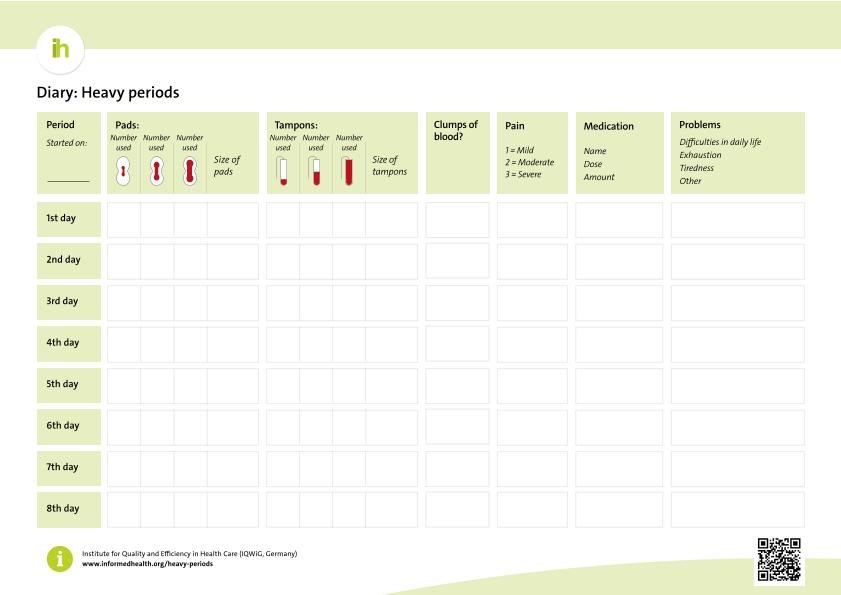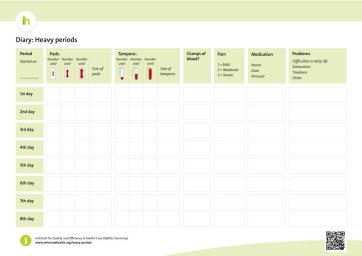Period diary

Heavy periods can affect your daily life and lead to anemia. Keeping a period diary can help you to get an idea of how much blood you lose during that time of the month.
It can be helpful to keep a record of how many pads and tampons you need on different days of your period over one or two months. This allows you to estimate how much blood you tend to lose during your period. You will find a PDF of our period diary here.


